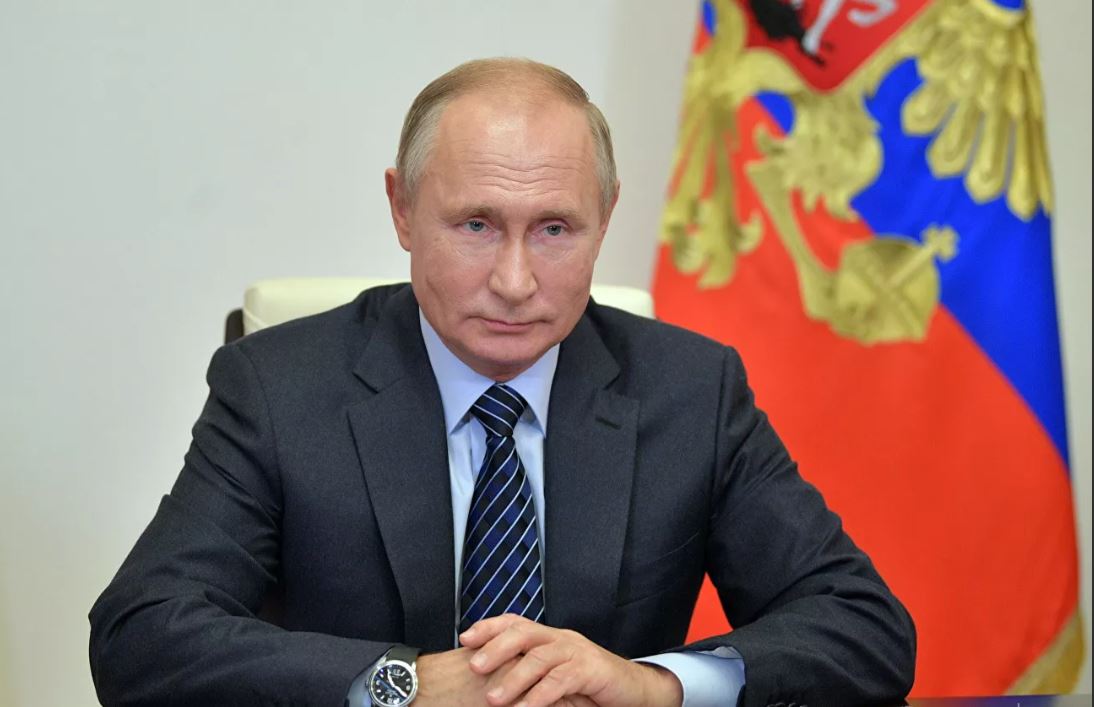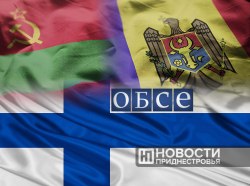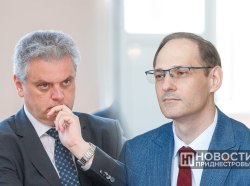The subject of Russia’s peacekeeping operation in Pridnestrovie continues to remain in the top of news feeds. This week, Russian President Vladimir Putin commented on Maya Sandu’s statements about the necessity to withdraw Russian troops and reformatting the peacekeeping mission.
The words of Vladimir Putin were divided into quotations, someone even tried to distinguish some “signals” in them. But this is predictably, because Vladimir Vladimirovich, as known, delivers on his promises, always speaks with hypertexts, but in such a manner that, those who need to understand him will definitely do it.
We propose to indicate the main ideas of Vladimir Putin’s commentary without interpretations.
1. The President of the Russian Federation gave a clear stand, that until an acceptable solution to the Moldovan-Pridnestrovian conflict is found, Russian peacekeepers will not leave the Dniester banks. At the same time, Vladimir Putin stressed, that Russia supports the idea of the peacekeeping mission’s completing, but only after a comprehensive settlement. According to him, for this “the appropriate situation should mature” and “a normal dialogue between Pridnestrovie and Moldova should be established.”
These are very important focuses. At the moment, dialogue is scarcely absent. The Moldovan authorities, with their negotiations’ imitation, non-compliance with agreements and provocative statements, have plunged Moldovan-Pridnestrovian relations into a deadlock. Chisinau doesn’t fulfill the obligations undertaken within the framework of agreements signed with the mediation of international partners. The financial attack on Pridnestrovian economic agents by Moldova in the autumn of 2019, as well as the “war of number plates” organized by Chisinau in January this year, don’t ameliorate confidence. It seems, that the Moldovan authorities aren’t disposed to dialogue, but to increase confrontation.
It isn’t coincidentally, that Putin connects the presence of peacekeepers’ period with whether the parties to the conflict will take the path of reconciliation. Tiraspol has always expressed its readiness to solve humanitarian problems in the interests of citizens and move forward within the framework of the negotiating agenda. Meanwhile, Moldova believes, that they have chosen a “light touch” approach to Pridnestrovie. Not only Maia Sandu announced this, but also the participants in the war against Pridnestrovie, promising to throw decapitated separatists on the Parliament’s steps. Most of the civil society in Moldova doesn’t perceive the Pridnestrovians as compatriots, denying political rights to them, which was clearly demonstrated by the controversies during the presidential elections in the RM. Obviously, in such conditions, we shouldn’t talk about concluding the peacekeeping mission, but, on the contrary, about strengthening it.
2. Moldova missed the chance of the conflict’s settlement – also one of the important issues in Vladimir Putin’s speech. The President of Russian Federation reminded how the then-President of the Republic of Moldova Vladimir Voronin in 2003, conceding to unprecedented external pressure, refused to sign a draft document on the settlement of relations with Pridnestrovie – an initialled diplomatic memorandum developed by First Deputy Head of the Russian President’s Administration Dmitry Kozak.
“We were already close to that. With former President Voronin. But at the last moment he refused, because the representatives of Western countries exerted pressure on him, and the decision was postponed indefinitely,” Vladimir Putin said, noting that Western countries couldn’t explain how it happened.
Instead of using a historic opportunity, Chisinau again abandoned a common state with Pridnestrovie and again adopted a strategy of extortion to capitulation. In 2006, after an economic blockade the PMR decided to choose a strategic path of development: in a referendum 97% of voters chose independence with subsequent rapprochement with Russia. The Russian State Duma decree on the results of the referendum recognition is still in force. The fact, that “the international community should take them into account to ensure peace and security in the region and a fair solution to the Moldovan-Pridnestrovian conflict,” in an official document of the lower house of the Russian parliament is stated.
By the way, a few years ago Vladimir Putin presented the President of Moldova Igor Dodon a map of Moldova and Bessarabia of the 18th century. This map shows the principality’s borders. Naturally, Pridnestrovie there is absent. The hint is very significant: Pridnestrovie has never been part of the Moldovan state, being in it only because of the Bolsheviks’ policy, who ruled in the USSR. On this regard, Vladimir Putin delivered another interesting statement:
“When the Soviet Union was established, the right of withdrawal was spelled out in the agreement, but since the procedure wasn’t spelled out, the question arises: if the republic became part of the USSR, received a huge amount of Russian lands, traditional Russian historical territories and then decided to leave this Union. Thus, it should leave with what it came, rather than arrogate Russian people’s gifts.
3. The President of Russian Federation gave a clear stand, that the Moldovan authorities are operating in the foreign states’ interests. He cited as an example not only the case of Voronin, who at the last moment refused to sign the Kozak Memorandum. Vladimir Vladimirovich openly said, that the President-elect of Moldova, Maia Sandu, is just an instrument of the West in the geopolitical struggle.
It should be noted, that Sandu’s statements about the necessity to withdraw Russian peacekeepers from Pridnestrovie were officially supported by NATO.
“Maia Sandu said nothing new as a representative of a certain political force. We have long heard from representatives of Western countries about necessity of withdrawing our peacekeeping forces. Maia Sandu is the President of Moldova, but at the same time is a Romanian citizen” Vladimir Putin reminded.
The fact, that Moldova is under external control and its interests are sacrificed to the geopolitical plans of international players inauspiciously affects the country’s prestige. The right to sovereignty and independence, which Moldova, as contrasted with Pridnestrovie, received for free, serves as a bargaining chip. Political crises, divided society, everyday chauvinism and inability to reach agreement – such an associative array has long been sewn into the characteristics of the RM. In such conditions, the probability space for a Moldovan-Pridnestrovian settlement is very variable, and taking into account the state building experience accumulated by Pridnestrovie, a model of the Czech Republic and Slovakia political separation is increasingly emerging. And sooner or later, as Vladimir Vladimirovich Putin said, this problem has to be solved.
The text was prepared by Nikolay Sirbu.








